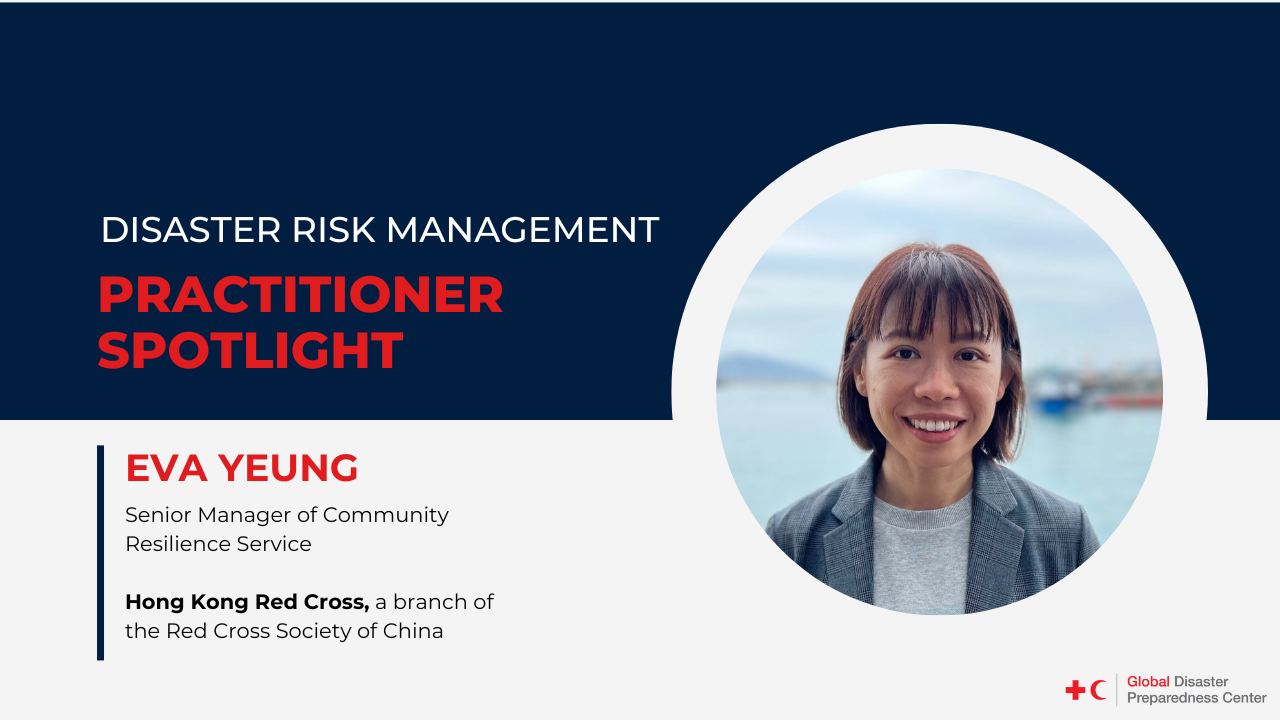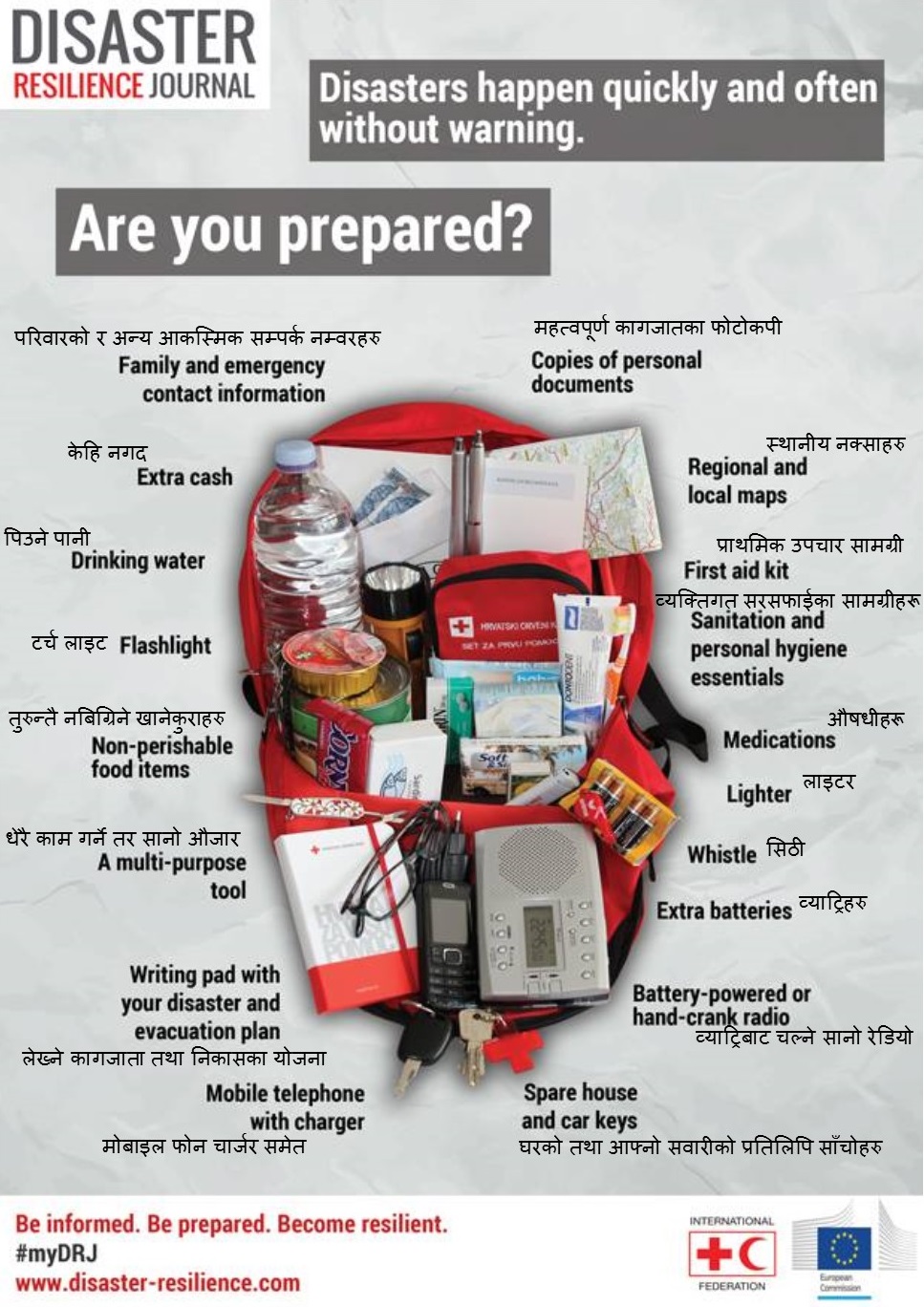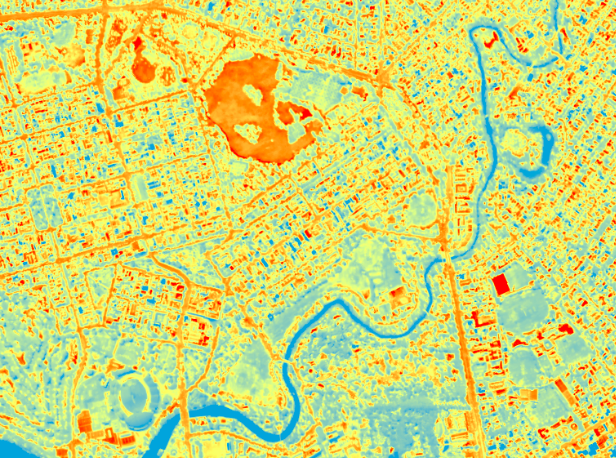Building resilience in Coastal Urban Communities
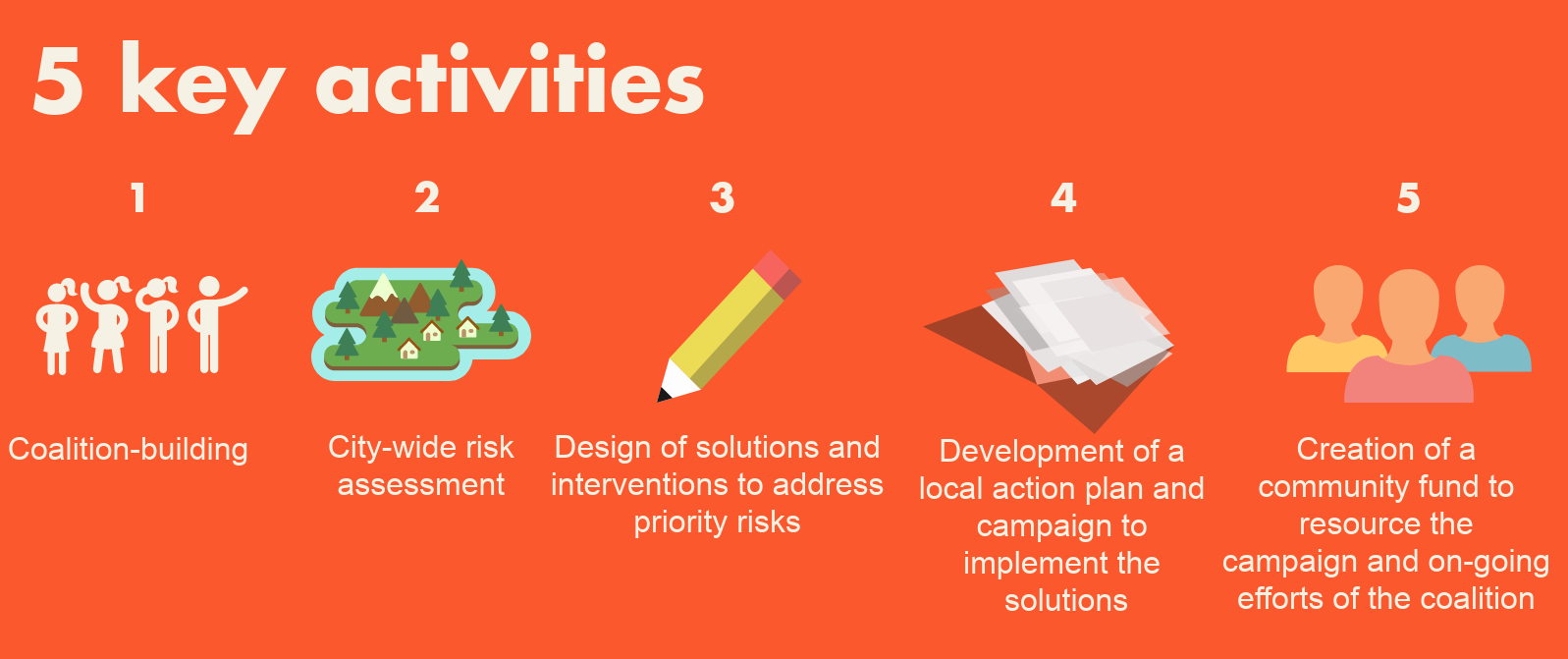
Urbanization is bringing many new challenges and opportunities, for example, natural hazards pose major risks to critical infrastructure and large population; with the demand of energy in these cities, greenhouse gas emissions are increasing; there are more frequent and intense extreme weather events and continuing sea level rise. With a blending of these issues, communities in urban areas are increasingly vulnerable to natural hazards and disasters.
The USAID/OFDA supported ‘Coalition Building in Coastal Cities for Building Resilience’ project which is currently being implemented in two cities of Indonesia and one city of Vanuatu was launched in Myanmar wherein it will be implemented in the city of Mawlamyine. The project will bring together the American Red Cross and Myanmar Red Cross to implement actions that will increase the resilience of at-risk communities in the city. The project will develop tools and services to support 5 key activities in the city which will be:

Myanmar commitment
On the 7th of March 2018, a National Level Launch Workshop was organized in Yangon where it brought together representatives from the Myanmar Red Cross (national, state and township level), Local Government Authorities from the Township level, IFRC, USAID and the American Red Cross.
In her opening address, the President, Myanmar Red Cross Society (MRCS) Prof. Dr Mya Thu mentioned that cities are vulnerable to natural and human made hazards and citing the example of the 2011 Tohoku earthquake and tsunami which caused large scale devastation and almost 16,000 deaths. She stressed the importance of preparedness for any eventuality and the role of the Myanmar Red Cross. She also appreciated the support from the American Red Cross and USAID/OFDA in selecting Myanmar for implementing this project.
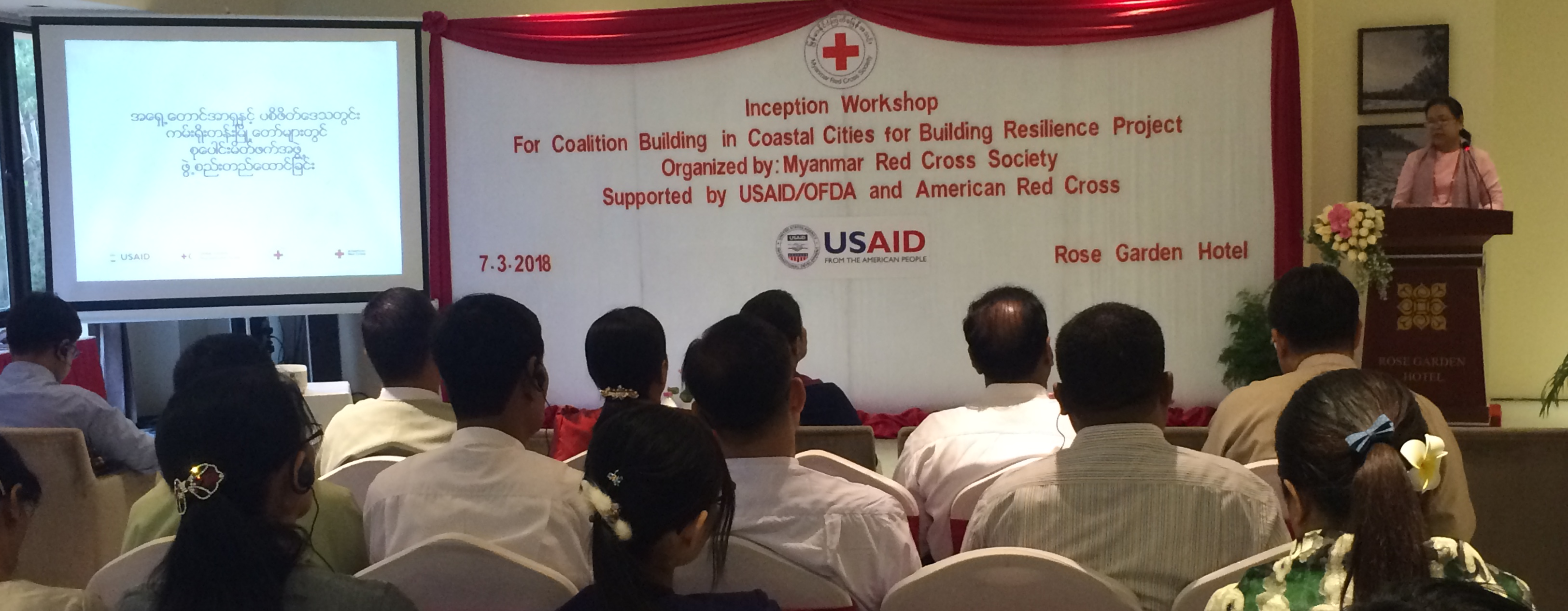
Mr. Brian Heidel, Regional Adviser, East Asia, USAID/OFDA spoke of the rate of urbanization and how this is creating new opportunities and challenges to a range of stakeholders and especially to at-risk communities. He also expected to see how the learnings from the other two countries could be adapted to Myanmar and how there can be more cross-learning.
In his remarks, the Head of Delegation – IFRC Myanmar, Mr. Joy Singhal said that this project was an opportunity for the National Society to work with a range of new partners and challenge itself to do something new and innovative in the urban context. He also spoke on the concept of the working in coalitions and how to use to power of these coalitions to advocate the issues on urban resilience to respective stakeholders. He also mentioned that the successes and learning from this project could help in replicating the project in other urban areas of the country.
Mr. Manish Tewani, Myanmar Country Representative – American Red Cross shared the history of the development of this project in Myanmar as well as urged all stakeholders to provide support to the implementation of this project.
Mr. Colin Fernandes, Urban Regional Coordinator – American Red Cross provided an overview of the project and walked the participants through the key activities of the project alongside citing examples and experiences from the Indonesia and Vanuatu projects. He also mentioned that it would be an enriching experience working on this project as it provides an opportunity to learn and challenge oneself to do something new and different.
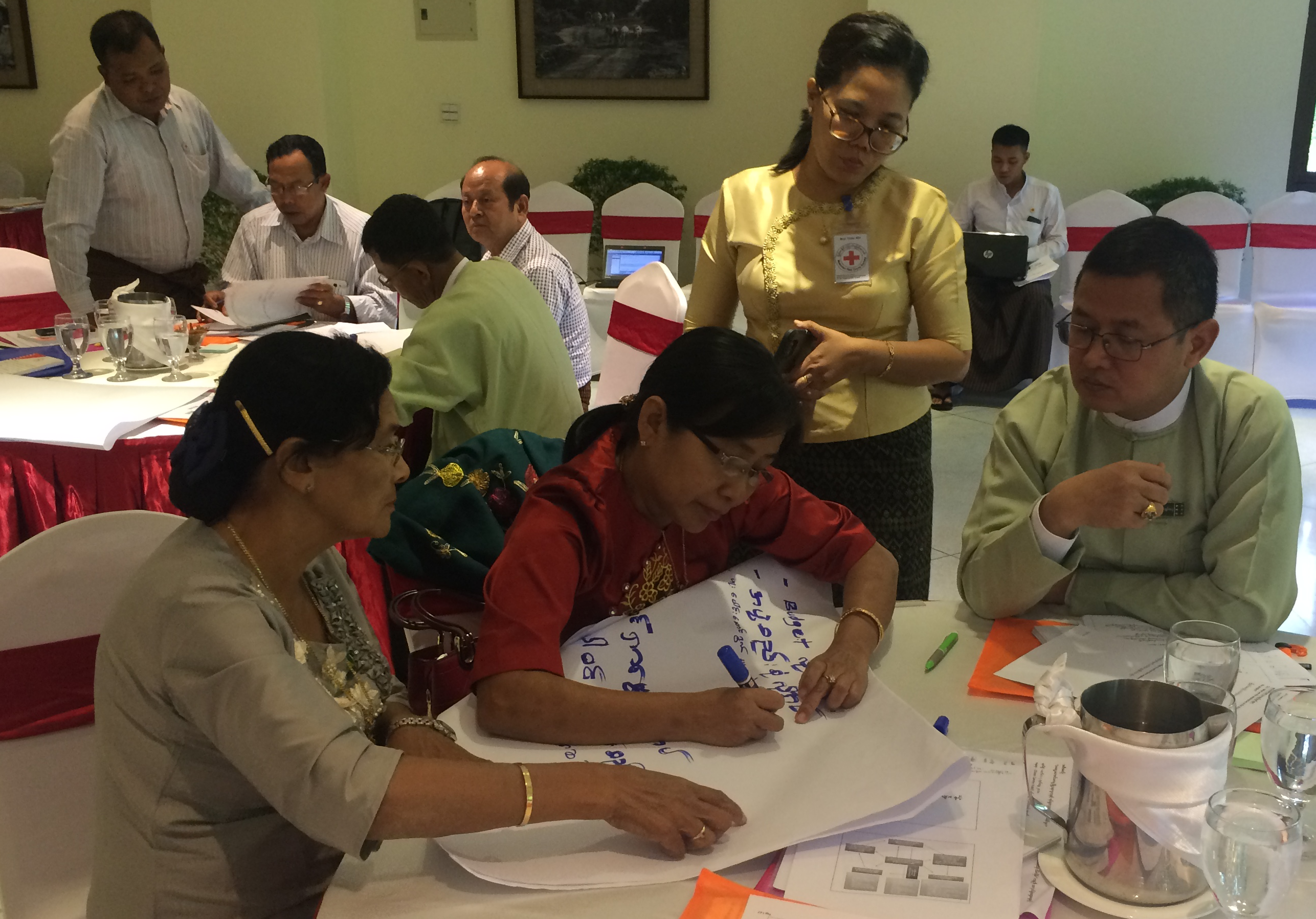
In the latter part of the workshop, an in-depth presentation of the project activities and what resources and capacities would be required or increased to help the National Society implement this project with the technical support of the American Red Cross was done. A SWOT analysis was done by the participants where they were able to identify the strengths, weakness, opportunities and threats of the township branch and City to implement the project and what strategies were to be put in places to overcome these threats and weaknesses.
Following this, a stakeholder analysis was also done by the group to identify the various stakeholders which would be strategic and critical for the success of this project. The participants were able to identify stakeholders from government levels, civil society organizations, academia, business sector and the media who could play an important role in the life of the project.
The workshop closed with the agreement that MRCS (National headquarters, State and Township branches) and the American Red Cross will work together with the Local Government Authorities in identifying a date for the launch of this project and a planning workshop for the project team at the city level.
publish article in Vanuatu Daily Post here
Lessons Learned :
Supporting Materials :

